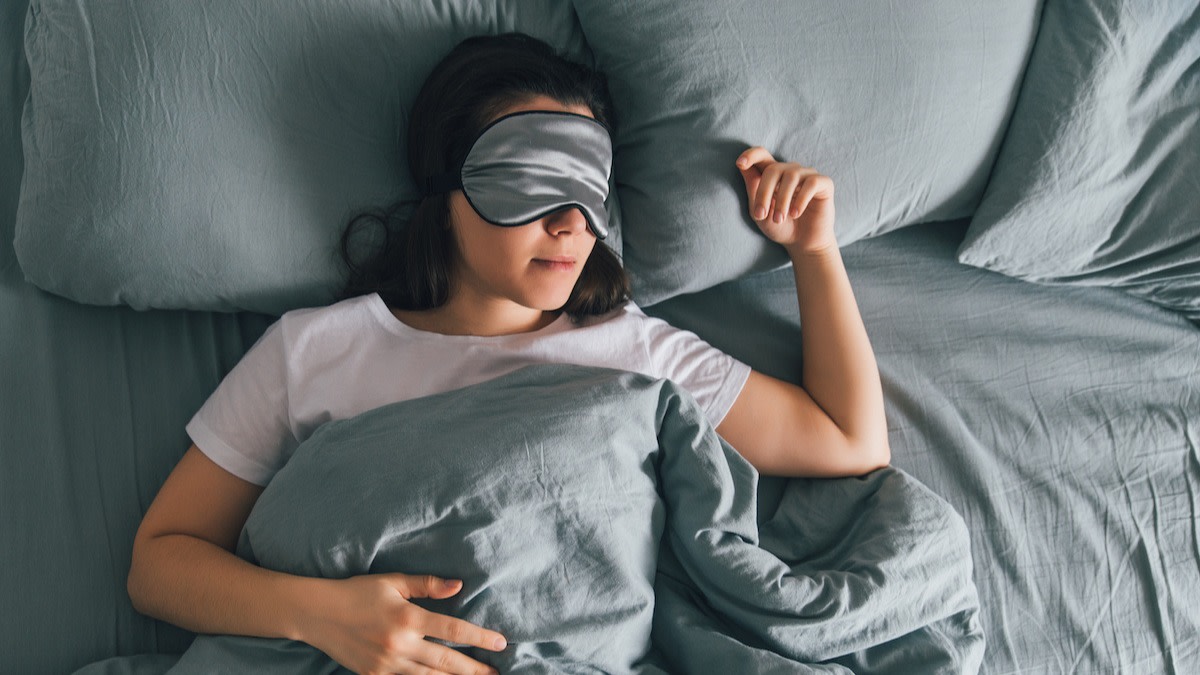Sleep Talking Explained: 6 Tips for Reducing Sleep Talking
Written by MasterClass
Last updated: Jun 7, 2021 • 4 min read
If you’ve been told by a bed partner or roommate that you sometimes mutter words or sounds during the night, you’re not alone—sleep talking is one of the most common behaviors that occur during sleep.
Learn From the Best
What Is Sleep Talking?
Sleep talking, or somniloquy, is unconscious speech during sleep, with vocalizations ranging from full sentences to incoherent gibberish. Sleep talking is a type of parasomnia, another name for abnormal behaviors while sleeping. Unlike other parasomnias, episodes of sleep talk can occur at any point in your sleep cycle, during both rapid eye movement (REM) sleep and non-rapid eye movement (NREM) sleep.
What Causes Sleep Talking?
The causes of sleep talking are not fully understood. Sleep talking may be hereditary, or it may result from fever, emotional distress, psychiatric disorders, medications, sleep deprivation, or substance abuse. Less commonly, sleep talking can be a sign of a more serious sleep disorder, such as night terrors or REM sleep behavior disorder (RBD), a parasomnia involving the physical acting out of dreams. If you experience sleep talking along with other sleep disorders, consider seeking out medical advice from a doctor or sleep specialist.
Is Sleep Talking Harmful?
Sleep talking is typically harmless. Episodes of sleep talk are most often brief and infrequent. If you’re a sleep talker, you probably won’t even realize that an episode occurred since sleep talking is an unconscious behavior. More likely, a family member, roommate, or bed partner is the one relaying back to you what you said the previous night.
Sometimes the content of a sleep talking episode can be obscene or offensive, particularly during NREM sleep, when sleep talk is more likely to include coherent conversations and full sentences. While this can be disconcerting or frightening for your bed partner, it’s important to remember that you are not in control of your sleep talking.
6 Tips for Reducing Sleep Talking
While there is no surefire way to ensure that you stop talking in your sleep, developing better sleep hygiene may reduce your sleep talking. Focus on these healthy habits for a better night’s sleep,
- 1. Stick to a consistent sleep schedule. Regularity is essential for good sleep hygiene. Find a bedtime that works for you, and stick to it. Wake up at the same time each day, even on weekends. Getting seven to nine hours of sleep every night is ideal for most adults. Your body thrives on routine, so find a sleep schedule that aligns with your circadian rhythm, a natural, internal clock that regulates your sleep patterns.
- 2. Sleep in a cool, dark environment. Your core body temperature drops roughly two to three degrees Fahrenheit to initiate sleep. If you have a thermostat, try setting it at 65 degrees, which is an optimal sleeping temperature for most people. Additionally, get some blackout curtains to keep your bedroom as dark as possible during the night. Darkness can help your body maintain a deep sleep.
- 3. Avoid alcohol and coffee near bedtime. Even though alcohol is a sedative that may cause drowsiness, it can lead to disruptions in sleep or an imbalance between REM and NREM sleep stages. On the other hand, caffeine is a stimulant that can block sleep and increase adrenaline production. Avoid drinking beverages with caffeine even in the afternoon, as the effects can last for several hours.
- 4. Establish a wind-down routine that works for you. Consistent behaviors before bedtime can help ease your mind into a pattern of deep sleep. Consider taking a warm bath or listening to relaxing music. Avoid screens as much as possible at night, especially in the 30 minutes leading up to bedtime. Stretching, meditation, and breathing exercises are also healthy options for unwinding.
- 5. Monitor your sleep. While it’s impossible to be fully in control of your sleep talking episodes, you can learn more about your unconscious behaviors by using a sleep recording app or writing in a sleep diary. Keeping a record of your sleep talking episodes can help demystify the experience and perhaps give you a better handle on how to talk with your bed partner about it.
- 6. Consult a medical professional. If you’re worried about your episodes of sleep talking, or if they’re paired with other parasomnias like sleepwalking or sleep terrors, talk with your doctor. They may recommend a sleep medicine specialist, who can perform a professional sleep study to assess whether you have an underlying medical condition or sleep disorder.
How to Share a Bed With a Sleep Talker
If your bed partner experiences episodes of sleep talking, their vocalizations might disrupt your own sleep. Consider using earplugs or a white noise machine to drown out the sound. If the disruptions continue, a separate bed may provide a solution.
As you work with your bed partner to build healthier sleep habits, keep in mind that sleep talking is typically a harmless and common sleep disorder. Remember that your bed partner may be unaware of the behavior and might even feel embarrassed about it. Approach the conversation with your bed partner from an understanding and constructive perspective. If other parasomnias accompany your bed partner’s sleep talking, encourage them to consult a medical professional.
Want to Learn More About Catching Those Elusive Zs?
Saw some of the best darn logs of your life with a MasterClass Annual Membership and exclusive instructional videos from Dr. Matthew Walker, the author of Why We Sleep and the founder-director of the Center for Human Sleep Science at the University of California, Berkeley. Between Matthew’s tips for optimal snoozing and info on discovering your body’s ideal rhythms, you’ll be sleeping more deeply in no time.
